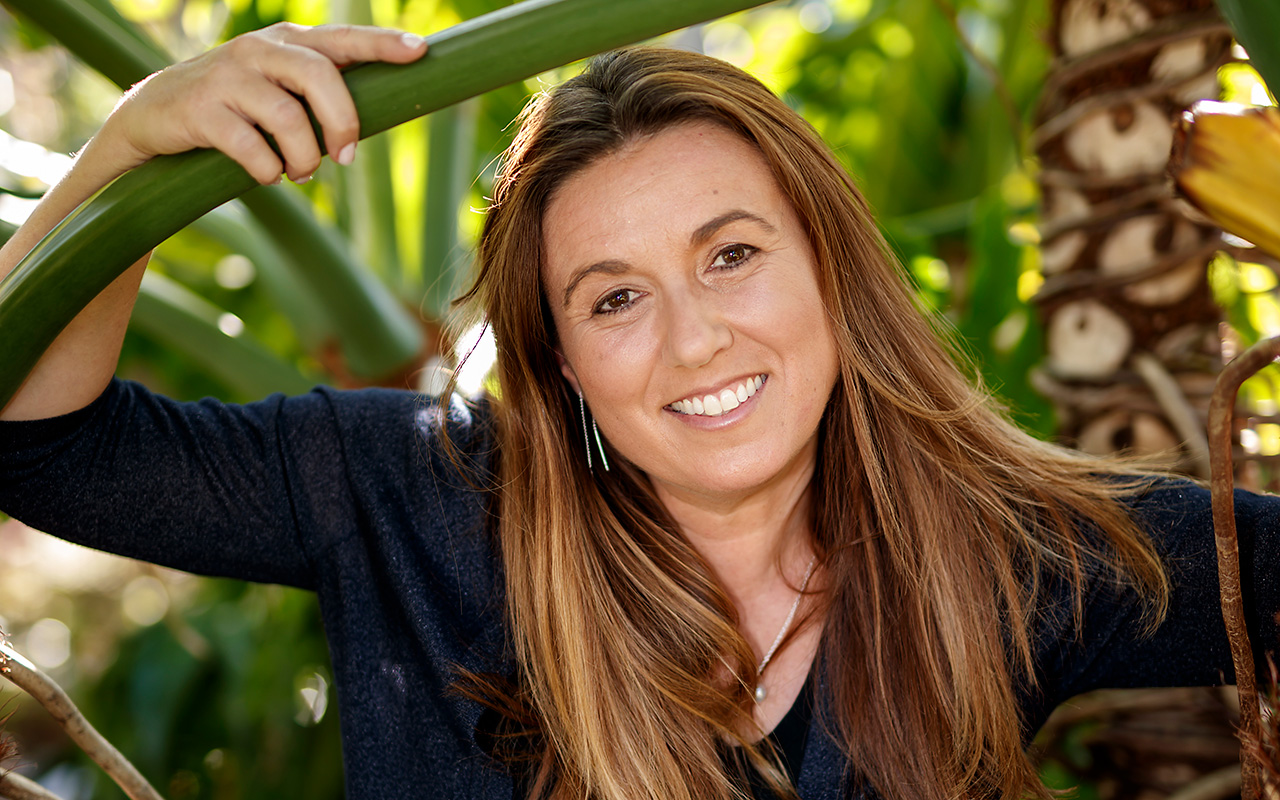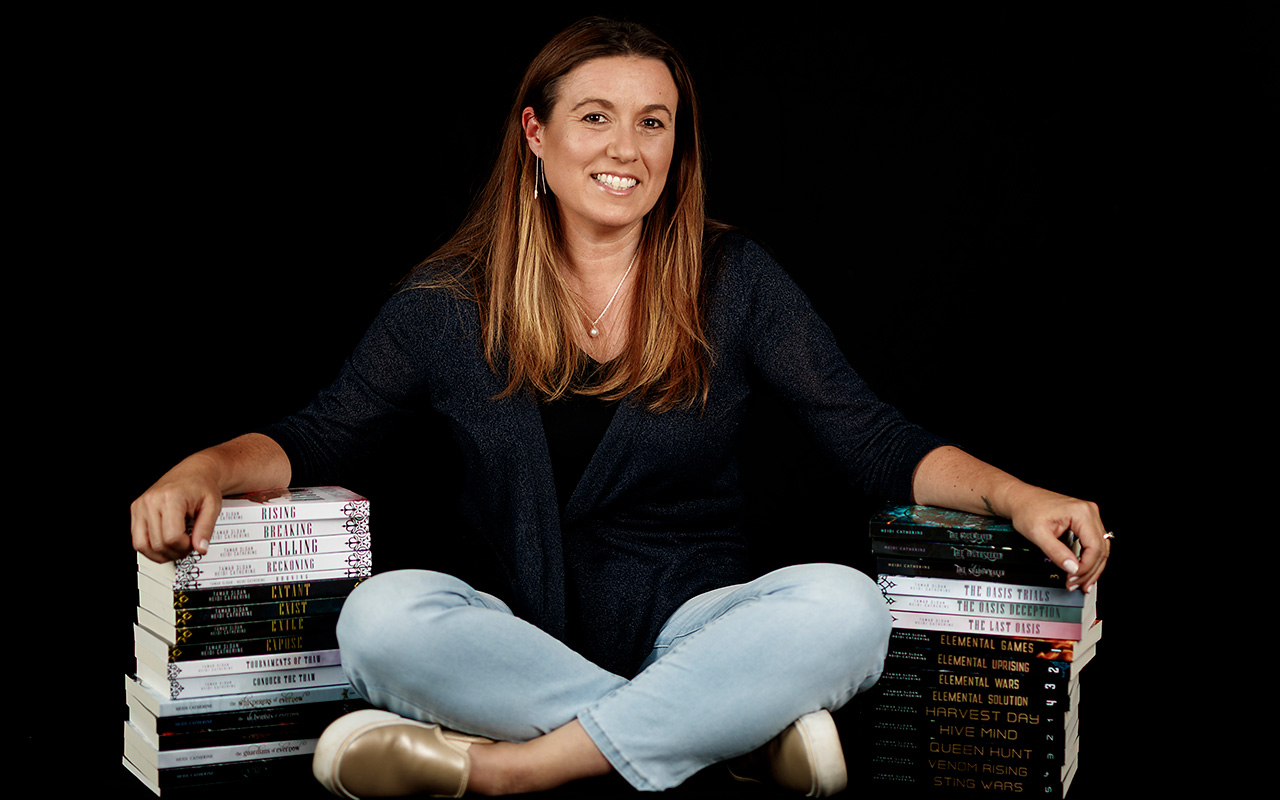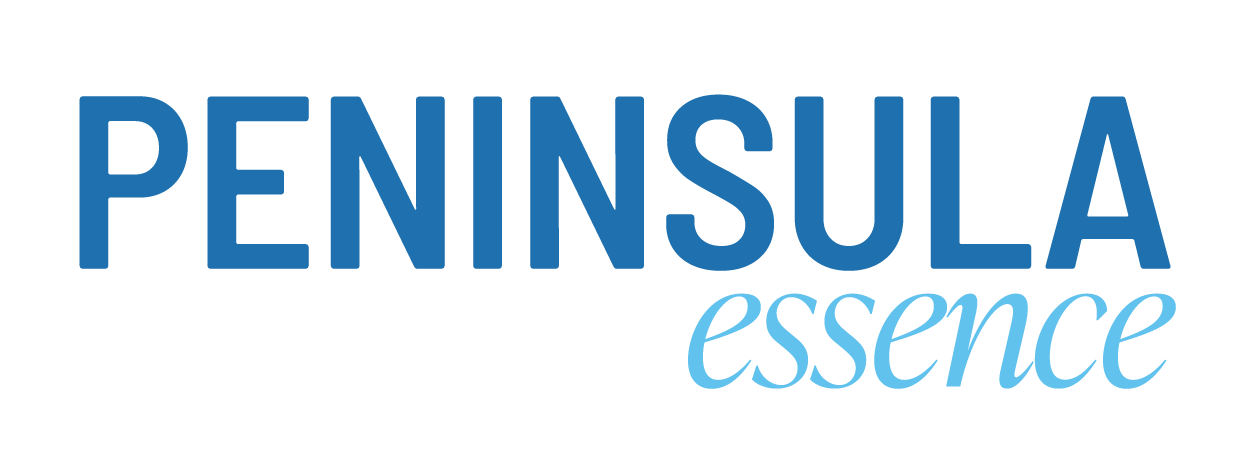
By Rob Sutherland. Photos Yanni.
Rosebud novelist Heidi Catherine jokes about her new “life of crime”; not a nefarious career change but merely the latest genre to which she is now turning her prodigious talent.
“I’ve always loved writing, as most writers have. My mum published a children’s book, maybe, 25 years ago. For me, it opened the door to thinking that it’s actually possible to have a book that you can hold in your hands; it can be more than just a dream.”
Heidi spent several years dabbling with children’s books and romance novels before shifting to YA (Young Adult) fantasy fiction. “I decided that I wanted to write the book of my heart, the book that I was passionate about. I’d been reading The Hunger Games and Twilight… where there were these great love triangles and impossible situations.” The resulting book, The Soulweaver, a love story about reincarnation, won the Romance Writers of Australia’s Emerald Pro Award for best unpublished manuscript in 2015. Publication through a UK publishing house followed, but money didn’t. She considered abandoning a writing career.
“I was like, ‘Okay, it’s a hobby. It’s making me a few hundred dollars here and there. It’s time to get a real job.’” So she took a job teaching public relations. Meanwhile, she was aware of friends having great success with indie (self) publishing. One such novelist, Canberra-based Tamar Sloan, invited Heidi to co-write with her. The pair established a prolific partnership that has produced more than twenty successful novels across numerous series in dystopian and fantasy fiction, allowing Heidi to focus on writing full time.
“At the start of a series we organise a weekend together. Usually I go to Canberra and we just hole ourselves up in a hotel for three days and work. People think we’re off for some booze up. Nup. We just work. All. Day. Long. Break for lunch. Break for dinner. Into the evening as well.”
Together they would map out a story and create an outline. Over ensuing weeks they would bounce chapters back and forth, editing one another’s work. “You don’t want to hold each other up. If it was my turn to write and she was waiting, there’s pressure to get the chapter done. The excuses fly out the door.”
Heidi describes herself as a ‘Pantser’ (a writer who writes by the seat of their pants). “But with co-writing, you have to be a ‘Plotter’. You can’t go rogue … although Tamar will tell you that I do it frequently!” Heidi emphasises that cowriting is not to be taken lightly. “You’re running a business together. You’re not just having this fun little writing project. We run spreadsheets to keep track of expenses and income. There’s a lot of trust involved.”
Heidi spends around half of her working hours writing and the other half engaged in the publishing side of the business – marketing, research, self- education, producing audio books and cover design. “If you’re working strategically you’re targeting America; it’s the biggest market in the world.
Even choosing, do you write it in first person or third person? Do you write it in past tense or present tense? It’s looking at what’s selling. What do those readers want?”
Dystopian and fantasy fiction also lend themselves to the screen. “We did have a few producers contact us about (14-book-series) The Thaw Chronicles, but COVID happened, and it just sort of fizzled. That would be the dream, obviously.”
Following her success in indie publishing, including nine solo titles, Heidi is now looking to step into traditional publishing for a while – a welcome change of pace. “Everything moves a lot slower. You hear traditional authors talk about their one book a year, for example. An indie doesn’t operate like that; it’s five books a year, six books a year.”
It’s nice to step into adult fiction, tackling things like motherhood, loss, death, that you don’t tend to cover in YA
She has also shifted genre again towards domestic suspense. “It’s nice to step into adult fiction, tackling things like motherhood, loss, death, that you don’t tend to cover in YA. I just find people fascinating, so being able to delve into that, putting characters in stressful situations, seeing how they react, what people would do for love or revenge or desperation.”
She remains grateful for the guidance of others along the way. “Authors are such a generous community. It’s just approaching people, getting those little nuggets of information, keeping your ears open. If you ask people, they’re happy to help you.”
Heidi now has the backing of a literary agent – Anjanette Fennell with Key People. “She can open doors that I can’t open myself. I’d love to be able to walk into a bookstore and see my book there on a shelf. You don’t get that with indie. You get your books everywhere on virtual shelves – it’s all over the internet – but it’s not in a bricks and mortar store. “It doesn’t mean that I’m walking away from indie at all. I can see both playing a role in my future.”
Heidi is enjoying the best of all worlds: living on the peninsula with immediate and extended family, and a literary career with an international readership. It’s an exciting time; a time of transition, of transformation, of possibility.
Heidi has a tattoo on her wrist, a single word: ‘Believe’. “People think it might be some religious thing. This really was me saying ‘Believe in yourself. Remember, you can do this’.” Securing a literary agent has turbocharged that feeling. “When someone else believes in you as well, that’s when it goes next level. It’s like, ‘Okay, I really have got this’.”
heidicatherine.com






